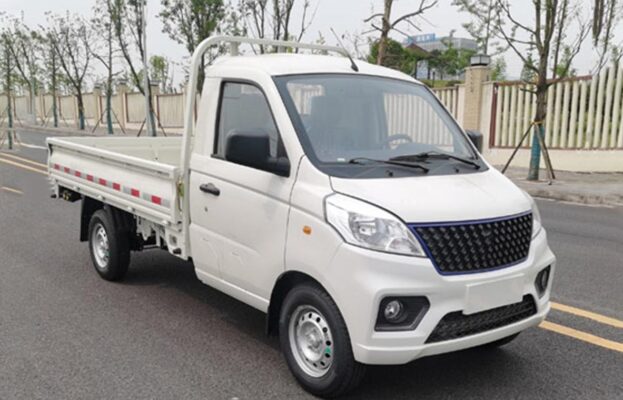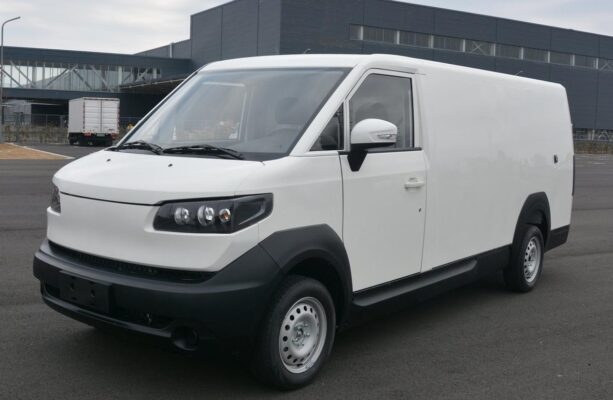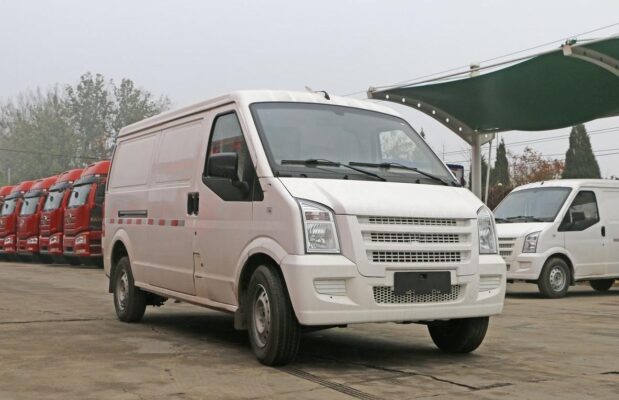Electric Truck Knowledge
What are the advantages and disadvantages of electric trucks?
Publicado el por Electric Trucks
In an effort to control vehicle exhaust emissions, the majority of cities have implemented traffic restriction policies on diesel trucks, placing truck drivers in a predicament. To address this issue, new energy light trucks have emerged, shouldering the responsibility of urban distribution. Let’s delve in detail into “What are the advantages and disadvantages of electric trucks?”

The advantages of electric trucks are as follows:
Reduce the cost of purchasing, maintaining and operating
To further stimulate the consumption of new energy vehicles, relevant departments offer specific subsidies for them. When truck drivers purchase new energy light trucks, they can avail of certain subsidies, thereby reducing the initial cost of vehicle acquisition. Compared to traditional fuel-powered vehicles, electric trucks eliminate the need for maintenance expenses associated with components such as air filters, oil filters, and fuel filters. This not only simplifies the maintenance process but also results in significant cost savings over the vehicle’s lifespan.

In the context of urban distribution, consider a fuel light truck with a 120L fuel tank capacity. A single refueling, based on the current oil price of 4.5 yuan per liter, would cost 540 yuan. Under standard loading conditions, it can travel approximately 800 kilometers, translating to a cost of 1.6 yuan per kilometer. On the other hand, a new energy light truck with a battery capacity of 811.14KWH requires 97.36 kWh for charging (81.14 multiplied by 1.2, accounting for the general charging loss rate). Assuming a common household electricity price of 0.4883 yuan per kWh, a full charge would cost 47.54 yuan. Under standard loading and optimal conditions, the maximum full-load cruising range of new energy light trucks can reach 330 kilometers. This implies that the operational cost for each kilometer of a new energy light truck is approximately 0.14 yuan. Through this comparison, it becomes evident that new energy trucks offer superior cost-effectiveness.
Greater road rights
Typically, the central urban areas of cities impose round-the-clock restrictions on diesel trucks, severely limiting their traffic rights. However, new energy trucks, being emission-free, do not face such stringent restrictions in the central urban zones. This provides new energy truck operators with enhanced mobility and access, allowing them to navigate through areas that are off-limits to diesel counterparts. The relaxed regulations not only facilitate efficient delivery and distribution within the city but also contribute to smoother urban logistics operations.

Improve urban basic charging facilities
Previously, the state has extended numerous preferential policies to new energy vehicles. This has led to a gradual expansion of the charging pile network, ensuring that the vast majority of cities now boast comprehensive basic charging facilities. As this infrastructure continues to evolve and expand, new energy vehicle owners are increasingly relieved of concerns related to the availability of charging options. The ongoing development of the charging pile network is expected to further alleviate any potential range anxiety or charging-related challenges. This not only enhances the practicality and usability of new energy vehicles but also encourages more widespread adoption and acceptance.
The cost savings associated with electric trucks extend beyond the upfront purchase and maintenance aspects. The efficiency and reliability of electric drivetrains contribute to reduced downtime for repairs and servicing, minimizing disruptions to operational schedules. Además, as technology progresses and economies of scale come into play, the cost of battery production and vehicle manufacturing is likely to decline further, making electric trucks even more economically viable in the long run.
The enhanced road rights for new energy trucks also have implications for urban planning and traffic management. By enabling more seamless movement of these vehicles within the city core, it promotes a more balanced and efficient distribution of goods and services, reducing congestion and improving overall urban logistics efficiency.

The improvement of charging facilities not only addresses the immediate charging needs of new energy vehicles but also lays the foundation for a more sustainable transportation ecosystem. It encourages the integration of renewable energy sources into the charging infrastructure, reducing reliance on traditional power grids and contributing to a greener and more environmentally friendly energy consumption model.
En conclusión, the advantages of electric trucks in terms of cost reduction, expanded road access, and improved charging infrastructure make them an attractive option for urban transportation and distribution. As these benefits continue to be realized and refined, the role of electric trucks in shaping the future of urban logistics is set to become increasingly prominent.